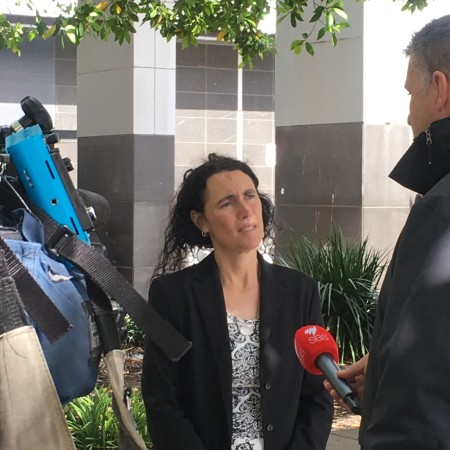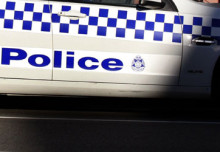Slow progress towards a racial profiling data-monitoring scheme
On 20 December 2016, Victoria Police reported back on its Equality is Not the Same action plan, which was developed as response to recommendations made to them in 2013 after a public inquiry and by two independent reports, including the Victoria Police Review of Field Contact Policy and Processes authored by the Cultural and Indigenous Research Centre Australia.
Affected communities and expert academics had been calling on Victoria Police to roll out statewide stop and search receipting, and to urgently introduce simple measures to gather and report on ethnicity data. Police have rejected mandatory receipting for stop and search and instead committed to a voluntary ‘business-card style’ receipt that can be provided upon request or at the police members discretion.
Without mandatory recording or accountability processes this initiative is unlikely to be useful in combating racially biased stops and represents a poor compromise.
The Receipting Trial Evaluation
Also released this week was the public Evaluation report into the Receipting Proof of Concept trial that was held in 2015.
Back in early 2015 we stated that police had “a poorly designed trial that will fail to provide the valuable data required to determine if disproportionate, discriminatory or arbitrary stop and search is occurring in Victoria.”
Upon reading through the 31 page Receipting Trial evaluation it quickly becomes apparent that Victoria Police have utterly failed to design and conduct an adequate trial that could effectively examine police stop rates and their impact upon different communities.
This is particularly evident when you compare it with a police report that came out of Ottawa only last month.
Last month the Ottawa Police Service in Canada released the results of its 2 year, Traffic Stop Race Data Collection Project which was developed in very similar circumstances, and run over the same time period as the Equality is Not the Same (ENS) action plan that Victoria Police reported upon this week.
In Ottawa, a York University research team were able to examine 81,902 traffic stops where officers recorded their perception of the driver’s race. The researchers found that police stopped drivers perceived to be Middle Eastern 10,066 times, or 12.3 per cent of the total stops. Drivers police identified as black were stopped 7,238 times, or 8.8 per cent of the time. This was about 2.3 times more than you would expect based on the population in Ottawa.
The Ottawa report has provided an extensive evidence base from which to act. Ottawa Police were able to say “We have received the report, and we are committed to working with the community and our members to better understand the information and develop an action plan that contributes to our bias-neutral policing efforts”.
On Tuesday morning, after three year of work to reduce racial profiling, Victoria Police, were not able to provide once single piece of data.
There was no way to measure the impact of their last three years of work. The Receipting trial in 2015 was not designed or conducted by university researchers or statisticians. It was put together poorly with an extraordinarily poor communication strategy and, as we had highlighted, would have little value unless it was designed in such a way that tracked receipts and monitored even basic data.
The Evaluation Report is not able to even provide basic data or numbers of receipts and why people issued them were stopped. It appears that Victoria Police simply did not want this sort of data to be public. It seems that the people designing the trials and the team evaluating it really did not understand what they were doing. The failure to attach academic or independent university based researchers to the project was a primary one.
Without proper data collection and monitoring the onus remains on individuals who allege discrimination to go through the arduous process of making an individual complaint, with minimal chance of a successful outcome. This has been the status quo for too long and it is time for Victoria Police to take responsibility for monitoring its own service delivery policies and practices which impact upon so many Victorians.
Some positive developments
While Victoria Police has decided not to proceed with mandatory receipting following what appears to be an ineffective evaluation of an ineffective trial conducted in 2015, there are some positive developments in the area of data collection:
The Final Equality is not the same Year 3 Report states:
“As an ongoing area of work, Victoria Police will continue to explore the interface of data collection/monitoring initiatives to support enhanced accountability and transparency with respect to discretionary contact between police and members of the public within the parameters of the Act.” P 33
We are very pleased to see an ongoing commitment to this critical step of monitoring and guarding against racial profiling.
The Victoria Police report also observes that:
“The VPMP Reporting Contacts and Intelligence policy was amended to state that where possible, the reporting member should include a description of the person’s physical appearance and their perception of the individual’s ethnic appearance.” P 34.
Again this is positive step in the right direction.
So Victoria Police are already recording the perceived ethnicity of field contacts – they are just not doing it responsibly, openly and transparently – as yet.
The next step is a mandatory rather than discretionary recording of police perceived ethnicity, consistent with recommendation 21 of the Field Contact Report.
Other positive developments include the development of special anti-bias and human rights training modules and their availablity to ranks beyond the early police academy. We will report on this anti-bias training early in the new year. Suffice to say Victoria Police remains the only police force in Australia to have anti-bias training embedded within core modules and deserves kudos for its work in this area.
All policing should be justifiable and accountable
The Victoria Police Manual now requires that field contacts can only be initiated and recorded when police have a reasonable belief that an offence has occurred or is about to be committed, a search is conducted or a move on direction is given. This is a very positive step in the right direction.
The next step is to require a reasonable basis and recording requirements for all police initiated stops, not just those that generate a field contact report. All policing should be justifiable and accountable.
Furthermore, to ensure transparency and accountability to permit the monitoring of the presence of racial profiling, it is essential that data on stops, searches and move on directions be regularly and meaningfully reported to the public through a trusted agency such as the Victorian Human Rights and Equal Opportunity Commission supported by University Research team.
Expert Working Group
In 2016, the Flemington & Kensington Community Legal Centre convened a specialist expert working group to provide expertise to the community, Victorian Government and Victoria Police on the establishment of a data collection strategy in Victoria. Members of this working group are:
- Professor Janet Chan (UNSW),
- Professor Chris Cunneen (UNSW),
- Tamar Hopkins (PhD candidate ANU)
- Dr Clare Land,
- Dr Raul Sanchez-Urribarri (LaTrobe Uni),
- Dr Victoria Sentas (UNSW)
- Associate Professor Leanne Weber (Monash).
The working group is undertaking a systematic review of the specialised literature and and an exploration of issues at a number of international data collection sites. The international sites are as follows:
- Metropolitan Police – London, UK.
- Kingston Police – Kingston, Ontario, Canada.
- Ottawa Police – Ottawa,
- New York Police Department, NYC, USA.
- Ferguson Police Department, Missouri, USA
- Baltimore Police Department, Maryland, USA.
- Minneapolis, Minnesota, USA.
- Melbourne, Victoria, Australia.
The Expert Working Group held a public forum on 8 December 2016 at Melbourne Law School and will release its report early in 2017.
Our next steps
The Chief Commissioner and spokespeople on the day of the release stated that the last three years had laid the groundwork for future work and that there was an ongoing Phase 3 program.
“The progress made under Equality is not the same… has laid the infrastructure and foundations on which we can achieve sustained, organisational change..” says Chief Commissioner Ashton in the foreward.
This reflects our understanding that significant institutional change will take far longer than just three years. This year we have been urging Victoria Police to commit to a continuing program of reform and that has been taken up.
So, Victoria Police has committed to a further three years of action (2017-2019). The focus of phase two will be the “continued implementation and demonstration of change at the grass roots level.” We look forward to working with Victoria Police and the Priority Communitioes Divison to advise and assist with this.
We will continue, alongside the network of community, legal and human rights bodies who share our concerns, to work towards a comprehensive race profiling data-monitoring scheme, alongside stop & search receipting. The report of the Expert Working Group will be launched in early 2017.
We will continue to support clients through the formal complaints processes and through the civil courts in their efforts to see real change.
We will continue our work with the Victorian Government to actively support the Victoria Police for the initiatives currently underway to eliminate racial profiling and ensure fair and impartial policing in Victoria through a range of legislative amendments which would prohibit the practice of racial profiling introduce into legislation the practice of receipting and statewide data collection.
The issue of racial profiling is complex and cannot be addressed through internal police administrative and policy means alone.
The introduction of body worn cameras, whilst potentially impacting upon a range of police accountability issues, will not address racial profiling.
In keeping with international best practice, it is critical that racial profiling be addressed legislatively in order to clearly identify the obligations and rights of the police and the community.
These legislative changes, combined with the next phase of Victoria Police reforms, will substantially improve the way in which police work with newly arrived, immigrant and culturally diverse communities in Victoria.
See here for more background.
The 3rd year report and media statements from Victoria Police can be found here.
Media:
Race data collection considered as Victoria Police scrap receipts, Sarah Farnsworth ABC News, 20 December 2016
“Victoria Police has scrapped its stop-and-search receipting program but the controversial idea of race data collection remains on the table as the force mulls over whether it would provide transparency or create more harm….
Victoria Police reject racial profiling concerns, commit to data collection trial, Luke Waters, SBS News, 20 December 2016
“Human Rights lawyers say police continue to target people on the basis of ethnicity and are calling for mandatory data recording to monitor potential racial profiling….
Young South Sudanese ‘constantly stopped’ by police, as community grapples with Apex stigma, Sarah Farnsworth, ABC News,
“Deng Maleek, a university-educated youth worker, was on his way to meet with police to discuss issues facing the South Sudanese community, when he was pulled over and asked to provide his registration papers….
Resources:
See Equality is Not the Same Next Steps for more background.
The 3rd year report and media statements from Victoria Police can be found here.
The Ottawa Police Service Report can be found here.





